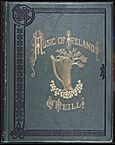| Entries |
| M |
|
Music Publishing
|

|
In the 1880s inexpensive (five–ten cent) music began to be issued by the National Music Company (1882), Saalfield Brothers (1888), and McKinley Music Company (1891). Religious music became increasingly prominent, from publishers like Edwin O. Excell (1885), Hope Publishing Company (1894), and the Rodeheaver Company (1910). Clayton F. Summy was one of Chicago's longest-lived music publishers, specializing in teaching material, sacred music, and works by Chicago composers.
With the popularity of Vaudeville in the 1890s, Chicago became a center for popular song publishers, like Will Rossiter (1891), publisher of “The Darktown Strutters' Ball” (1917), and the Melrose Brothers Music Company (1920), publisher of “King Porter Stomp” (1924) and “It's Tight Like That” (1928).
As Chicago became a center of gospel music, it also became a center for publishing that music. The most notable firms were established by musician/composers: Dorsey House (Thomas A. Dorsey) and the Martin and Morris Music Company (Kenneth Morris and Sallie Martin).
The Encyclopedia of Chicago © 2004 The Newberry Library. All Rights Reserved. Portions are copyrighted by other institutions and individuals. Additional information on copyright and permissions.